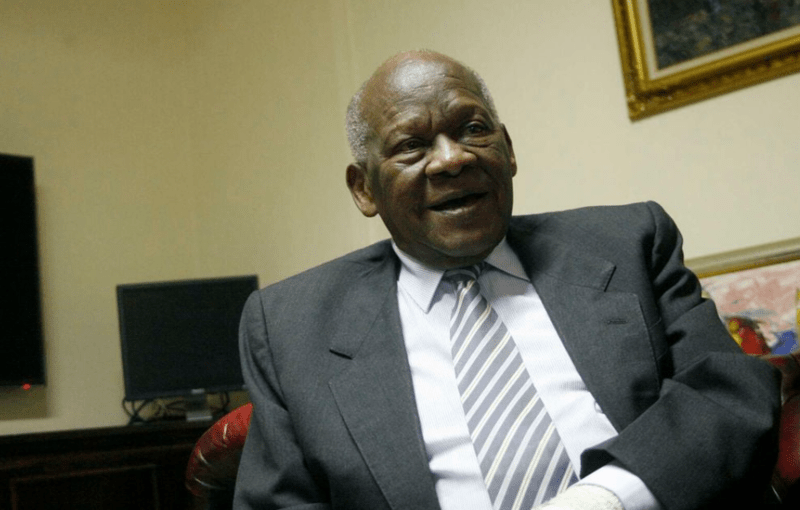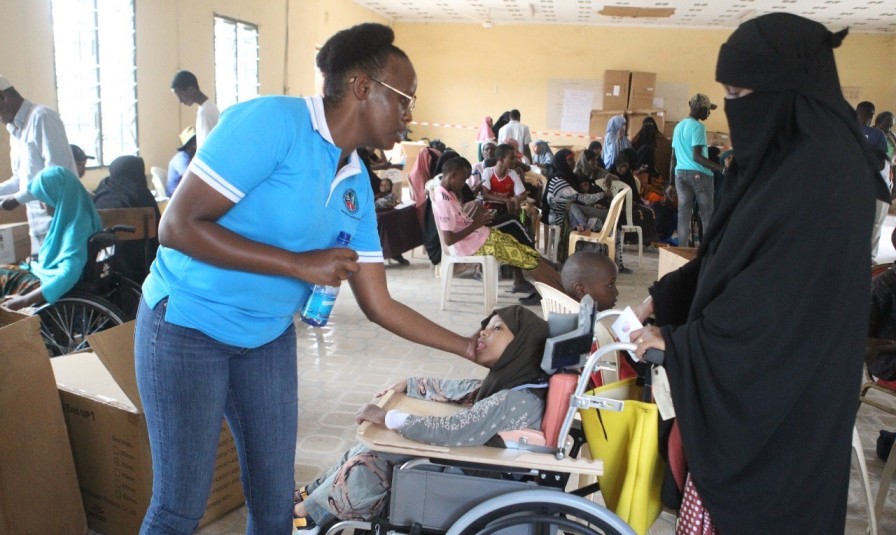Low self-esteem: Confronting dangers of the silent crisis

By Charity Kilei |
WHO says more than 700,000 people die by suicide annually, with approximately 20 suicide attempts for each death.
Loise (not her real name) recalls how she transitioned from a happy child to a young woman plagued by low self-esteem and feelings of worthlessness.
"I was always a good girl, and the teachers loved me. I never caused any trouble and was always chosen to be a prefect. But this didn't sit well with my peers, who often side-lined me, thinking I was a snitch," Loise told The Eastleigh Voice.
Keep reading
Her childhood was lonely, as she grew up in a broken family. She hid her pain, constantly crying herself to sleep.
"The feeling of being alone all the time hurt me. I would feel insecure and afraid to air my opinions in class. To win my peers over, I decided to go with the wind, pleasing everybody because I wanted to have some friends."
Loise's low self-esteem worsened when she went to college. Fearful of what people thought about her, she succumbed to peer pressure.
"I got involved in alcohol and drugs just to please my friends. Whatever they said I went along with, but deep inside, I knew it was wrong. I felt like I had no choice," said Loise.
Her low self-esteem also affected her relationships. She allowed herself to be manipulated and often took the blame, feeling like her opinion didn't matter. This followed her to her workplace where she would keep her opinions to herself in meetings, out of fear and feeling less important.
“My thoughts would often turn dark and scary while dealing with social challenges, feeling misunderstood by others. To cope, I would resort to crying and following the crowd. I hid it from my parent because I didn't want to add to her stress. Having already lost my other siblings, I felt overwhelmed as the only surviving child,” said Loise.
Professional counselling
Her life changed when she sought counselling from a professional who helped her understand how to deal with her childhood traumas.
"I learned to speak up for myself and deal with the root causes of my low self-esteem. I have made tremendous progress," Loise said.
Now 28, Loise is a vibrant young woman, exploring life with a positive mindset.
Like Loise, many people carry the burden of low self-esteem and low self-worth, often stemming from past experiences and childhood trauma into adulthood. These unresolved issues can deeply affect their decision-making processes and lives in the long run.
Many face challenges like abuse and neglect, and take time to deal with them, not realising how significantly they impact their lives and decisions.
Selline Okumu, a clinical psychologist at Mathari National Teaching and Referral Hospital, said there is a link between low self-esteem, low self-worth, and feelings of hopelessness, which can lead to severe consequences, including suicide or harm to others.
 Selline Okumu , a Clinical Psychologist at Mathari National Teaching and Referral Hospital during an interview with The Eastleigh Voice. (Photo: Justine Ondieki)
Selline Okumu , a Clinical Psychologist at Mathari National Teaching and Referral Hospital during an interview with The Eastleigh Voice. (Photo: Justine Ondieki)
"Many young adults who come to the hospital face issues primarily stemming from family dynamics, pressure from parents, difficulty fitting into peer groups, and academic stress. They often feel like their lives have no meaning. Some even say they feel unwanted, which leads to them secluding themselves," Okumu said.
She added that individuals grappling with low self-esteem may resort to harmful behaviour as a coping mechanism.
"I've observed that some young people displaying attention-seeking behaviours often resort to extreme measures to gain recognition,” Okumu says.
If not addressed, low self-esteem follows people into adulthood, wreaking havoc in their lives, she said, adding that people should monitor their thoughts and learn to interpret negative experiences correctly.
“For those experiencing suicidal thoughts, we empower caregivers to monitor patterns and support them effectively,” said Okumu.
Dr Hanaa Muse, a counselling psychologist at Zazi Hospital in Eastleigh, said they encounter mental health issues such as panic attacks, suicidal thoughts, OCD (obsessive-compulsive disorder), low self-esteem, and depression
“In the past four months, I've handled over ten cases of low self-esteem and suicidal thoughts, especially among teenage girls. Many of them feel overwhelmed by pressures and find it difficult to open up about their challenges, both at school and socially,” said Hanaa.
She said many individuals do not believe in seeking therapy and instead attempt to manage such thoughts independently.
“Effective parental guidance is essential to addressing these issues,” She said.
She said the community plays a significant role in shaping a child's self-perception, especially during childhood.
Hanaa said children and young adults need encouragement and careful treatment, as mishandling them can have lasting effects into adulthood.
According to the World Health Organisation, stigma surrounding mental health and suicide often prevents individuals from seeking help.
Multiple factors contribute to suicide, including social, economic, cultural, and psychological challenges like lack of access to resources, discrimination, and significant life stressors like job loss or relationship breakdowns.
WHO says more than 700,000 people die by suicide annually, with approximately 20 suicide attempts for each death.
Suicide is a global issue affecting people of all ages and regions. In 2019, it was the fourth leading cause of death among 15–29-year-olds worldwide, with 77 per cent of suicides occurring in low- and middle-income countries.
WHO says decriminalising suicide can save lives by reducing stigma, encouraging help-seeking behaviour, improving data collection for effective interventions, and promoting awareness and advocacy for suicide prevention.



















